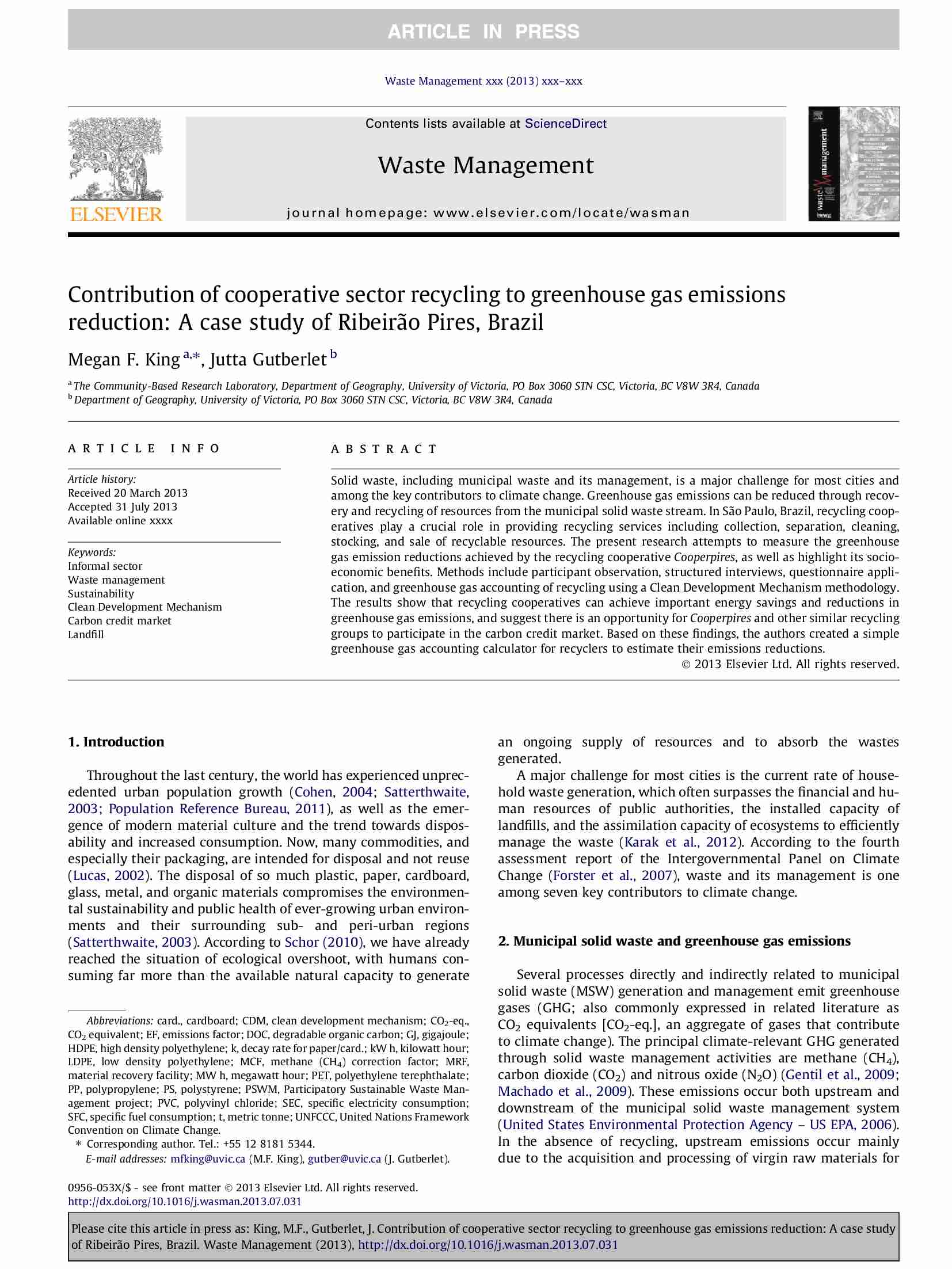Contribution of cooperative sector recycling to greenhouse gas emissions reduction: A case study of Ribeirão Pires, BrazilWaste Management
Abstract: Solid waste, including municipal waste and its management, is a major challenge for most cities and among the key contributors to climate change. Greenhouse gas emissions can be reduced through recovery and recycling of resources from the municipal solid waste stream. In São Paulo, Brazil, recycling cooperatives play a crucial role in providing recycling services including collection, separation, cleaning, stocking, and sale of recyclable resources. The present research attempts to measure the greenhouse gas emission reductions achieved by the recycling cooperative Cooperpires, as well as highlight its socioeconomic
benefits. Methods include participant observation, structured interviews, questionnaire application, and greenhouse gas accounting of recycling using a Clean Development Mechanism methodology. The results show that recycling cooperatives can achieve important energy savings and reductions in greenhouse gas emissions, and suggest there is an opportunity for Cooperpires and other similar recycling groups to participate in the carbon credit market. Based on these findings, the authors created a simple greenhouse gas accounting calculator for recyclers to estimate their emissions reductions.
View list of all: Journal Articles

